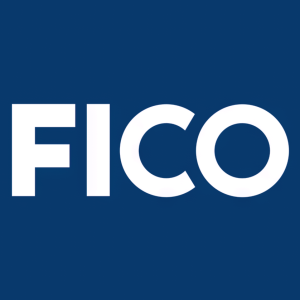New FICO Study: More Credit Lessons, Less Chemistry in High School Classrooms, Americans Say
Most Americans Think Their Current Financial Situation Would Improve If They Had Access to More Personal Finance Resources and Education
Highlights:
-
Most Americans (
79% ) think high schools should offer financial education. -
More than one in four (
28% ) members of Gen Z do not consider themselves financially literate; significantly higher than Millennials (20% ), Gen X (19% ) and Baby Boomers (10% ). -
74% of Americans think their current financial situation would improve if they had access to more personal finance resources and education.
Move over Bunsen burners and ancient civilizations, adults in the
A new study by global analytics software leader FICO found that 3 in 5 Americans (
Nearly three in five Americans (
“Those gaps help explain why financial literacy remains a long-standing challenge,” said Jenelle Dito, senior director of Client Services at FICO. “We found that more than one in four members of Gen Z does not consider themselves financially literate. That’s significantly higher than members of the Millennial (ages 28-43), Gen X (ages 44-59) and Baby Boomer (ages 60-78) generations.”
“It’s particularly alarming considering that Americans almost universally believe financial literacy is important for achieving financial stability and that access to more education could help them improve their current financial situation. Yet, a quarter of Gen Z adults say a lack of personal finance skills has prevented them from achieving their financial goals over the past year,” she added.
Nearly all (
Credit Education is a Missing Link for Gen Z
Understanding how credit scores work was cited by Gen Z adults as one of the most important financial literacy skills (
While nearly two-thirds of Gen Z adults (
“Ensuring today’s youth have access to resources to gain practical knowledge and life skills is paramount to their future success,” said Sally Greenberg, CEO, National Consumers League (NCL). “Personal finance education, including around credit, is critical to fostering the next generation of secure consumers.”
Closing the Credit Education Gap
“More state legislatures are requiring schools to incorporate financial literacy education into their curriculum, which is an important step in the right direction,” Dito said. “FICO understands that there is much more work to be done. We remain committed to expanding awareness of the tools and programs that exist to address this gap.”
While FICO’s survey found a slight majority of Gen Z adults (
To that end, FICO offers a free credit education curriculum called Score A Better Future™ (SABF) Fundamentals that educators can use to teach their students how to make informed credit decisions that can last a lifetime.
FICO has a longstanding commitment to empowering people and economies through financial literacy. In addition to this curriculum and live SABF Fundamentals workshops, FICO provides resources to help people enhance their financial literacy, understand credit, and make empowered decisions. This includes in-person and webinar workshops, credit education materials and tools, as well as the myFICO website and app that enable consumers to check and monitor their FICO® Score for free.
For more information about FICO’s credit empowerment programs, visit https://www.fico.com/empowerment.
Methodology
This survey was conducted online within
About FICO
FICO (NYSE: FICO) powers decisions that help people and businesses around the world prosper. Founded in 1956, the company is a pioneer in the use of predictive analytics and data science to improve operational decisions. FICO holds more than 200 US and foreign patents on technologies that increase profitability, customer satisfaction and growth for businesses in financial services, insurance, telecommunications, health care, retail and many other industries. Using FICO solutions, businesses in more than 100 countries do everything from protecting 4 billion payment cards from fraud, to improving financial inclusion, to increasing supply chain resiliency. The FICO® Score, used by
Learn more at https://www.fico.com/en.
Join the conversation at https://x.com/FICO_corp & https://www.fico.com/blogs/.
For FICO news and media resources, visit https://www.fico.com/en/newsroom.
FICO and Score A Better Future are trademarks or registered trademarks of Fair Isaac Corporation in the
View source version on businesswire.com: https://www.businesswire.com/news/home/20240924403204/en/
Julie Huang
press@fico.com
Source: FICO







